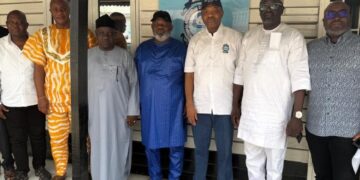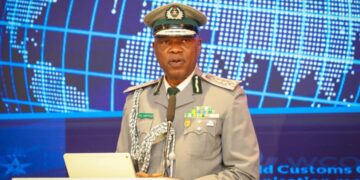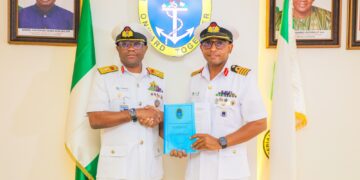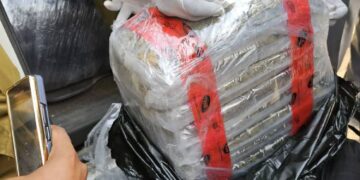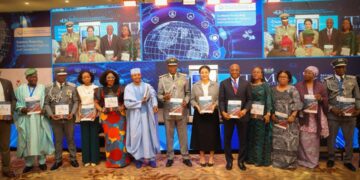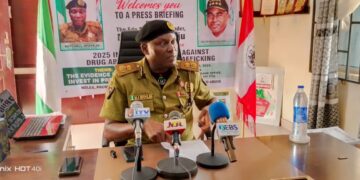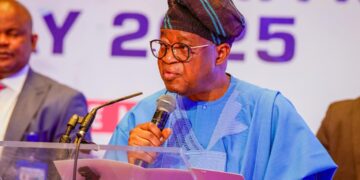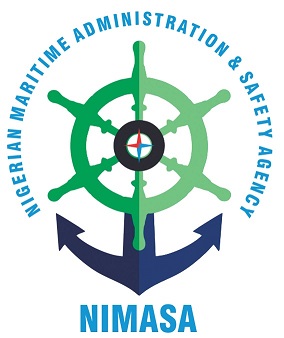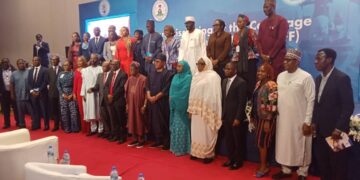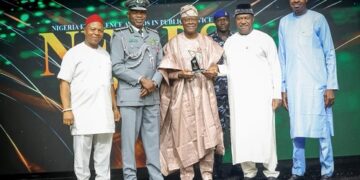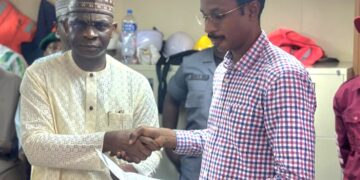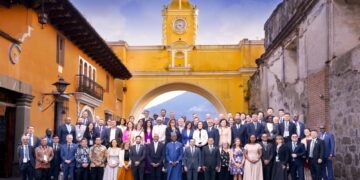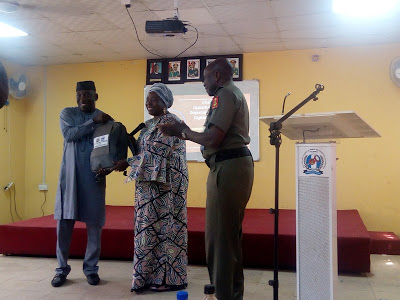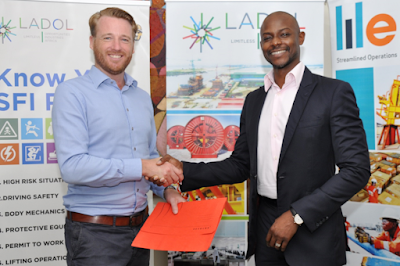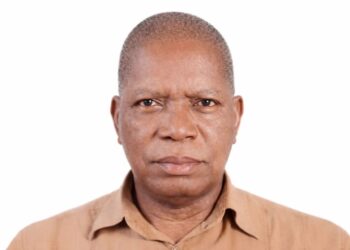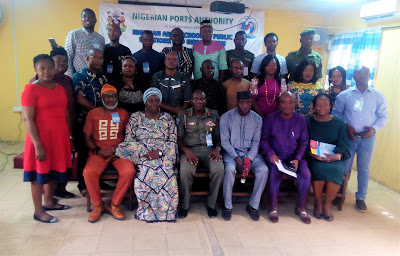 |
| Ag. Commandant of NASPRI, Col. Mustapha Anka, in a group photograph with participants and resource persons at the end of the training programme in Bonny Camp, Victoria Island, Lagos. |
Maritime reporters at a three-day
training were exposed to rudiments for effective engagement of the social media
platforms in their daily reportage of industry activities.
training were exposed to rudiments for effective engagement of the social media
platforms in their daily reportage of industry activities.
The training, themed “Challenges
and Opportunities for Maritime News Reportage in an Increasingly Digital Mobile
and Social Media Environment” was facilitated by the Nigerian Ports Authority
(NPA) in collaboration with the Nigerian Army School of Public Relations and
Information (NASPRI), from January 20- 22 in Bonny Camp, Victoria Island Lagos.
and Opportunities for Maritime News Reportage in an Increasingly Digital Mobile
and Social Media Environment” was facilitated by the Nigerian Ports Authority
(NPA) in collaboration with the Nigerian Army School of Public Relations and
Information (NASPRI), from January 20- 22 in Bonny Camp, Victoria Island Lagos.
Managing Director of the NPA,
Hadiza Bala Usman, in her opening remarks said the training programme was part of efforts to continually sustain relationship with the media, who are vital
stakeholders reporting the NPA’s activities as key regulatory agency of the
maritime industry.
Hadiza Bala Usman, in her opening remarks said the training programme was part of efforts to continually sustain relationship with the media, who are vital
stakeholders reporting the NPA’s activities as key regulatory agency of the
maritime industry.
According to the managing
director, the training would be mutually benefiting to the journalists as well
as the NPA, as both parties would have the opportunity of addressing issues of
common interest for their good.
director, the training would be mutually benefiting to the journalists as well
as the NPA, as both parties would have the opportunity of addressing issues of
common interest for their good.
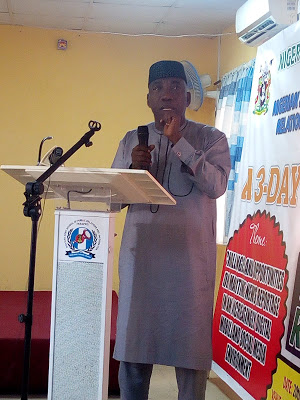 |
| Mr. Lawal Ahmed of the NTA 2 Network, delivering his paper at the training on Wednesday |
Represented by Mr. Olusola
Akosile, Head of Graphics and Production Unit of the Corporate and Strategic
Communication Department, the managing director said it delights the NPA to
support worthy causes that could further progress the maritime media in carrying
out their duties.
She noted that “the digital media
has been embraced and people now get the news on the go. I read news on my phone,
therefore, I am convinced participants will learn a lot from this training.”
has been embraced and people now get the news on the go. I read news on my phone,
therefore, I am convinced participants will learn a lot from this training.”
Welcoming the journalists drawn from
various media organisations to the training session, the Ag. Commandant of
NASPRI, Col. Mustapha Anka, advised that they took seriously the sensitive
nature of using information from the social media, particularly as it concerned
the security and protection of the nation’s integrity.
various media organisations to the training session, the Ag. Commandant of
NASPRI, Col. Mustapha Anka, advised that they took seriously the sensitive
nature of using information from the social media, particularly as it concerned
the security and protection of the nation’s integrity.
Anka also urged the journalists
to ensure that facts were confirmed with the appropriate authorities before
they published reports that could go viral on the social media, thus becoming
impossible to retrieve.
to ensure that facts were confirmed with the appropriate authorities before
they published reports that could go viral on the social media, thus becoming
impossible to retrieve.
He said: “The media are very
powerful, therefore, it is your responsibility to ensure that you check with
the authorities on information you have to publish. This is important because
it shapes the decisions many people will be making.
powerful, therefore, it is your responsibility to ensure that you check with
the authorities on information you have to publish. This is important because
it shapes the decisions many people will be making.
“If you only project the country
by way of reporting the maritime industry, in a negative manner, then it
becomes difficult to encourage foreign investors. Of course, you will do your
job, the credibility of your news source is important, in order to safeguard
the nation.”
by way of reporting the maritime industry, in a negative manner, then it
becomes difficult to encourage foreign investors. Of course, you will do your
job, the credibility of your news source is important, in order to safeguard
the nation.”
The core of the training covered
the need for maritime journalists to pursue original stories, be objective and
be very mindful of how the social media platforms would be used as they carry
out their duties reporting the maritime industry.
the need for maritime journalists to pursue original stories, be objective and
be very mindful of how the social media platforms would be used as they carry
out their duties reporting the maritime industry.
Resource persons who delivered
the different papers during the training period were Maj. Olabisi Ayeni, Dr. Olunifesi
Suraj, a Senior Lecturer of Mass Communication Department at the University of
Lagos, Mr. Marcel Anyanwu, a Consultant on the NASPRI programme and Mr. Lawal
Ahmed, Zonal Coordinator of the Nigerian Television Authority(NTA) 2 Network,
Victoria Island, Lagos.
the different papers during the training period were Maj. Olabisi Ayeni, Dr. Olunifesi
Suraj, a Senior Lecturer of Mass Communication Department at the University of
Lagos, Mr. Marcel Anyanwu, a Consultant on the NASPRI programme and Mr. Lawal
Ahmed, Zonal Coordinator of the Nigerian Television Authority(NTA) 2 Network,
Victoria Island, Lagos.
Papers delivered included ‘’Social
Media/Maritime Reportage: Issues, Options and Strategies; “Using Social Media
to Engage Maritime Audience with a Goal of Increasing Trust in Professional
Maritime Reportage; “Trust, Facts and Engagements: Knowing when and how to
engage maritime stakeholders”; “Preservation of National Security and Reputation
of Organisation through Fair Reportage” and “Convergence and Leveraging Media
Consumption Changes to Benefit Industry Stakeholders.”
Media/Maritime Reportage: Issues, Options and Strategies; “Using Social Media
to Engage Maritime Audience with a Goal of Increasing Trust in Professional
Maritime Reportage; “Trust, Facts and Engagements: Knowing when and how to
engage maritime stakeholders”; “Preservation of National Security and Reputation
of Organisation through Fair Reportage” and “Convergence and Leveraging Media
Consumption Changes to Benefit Industry Stakeholders.”
Staff members of the Corporate
and Strategic Communication Department of the NPA also participated in the
training.
and Strategic Communication Department of the NPA also participated in the
training.



